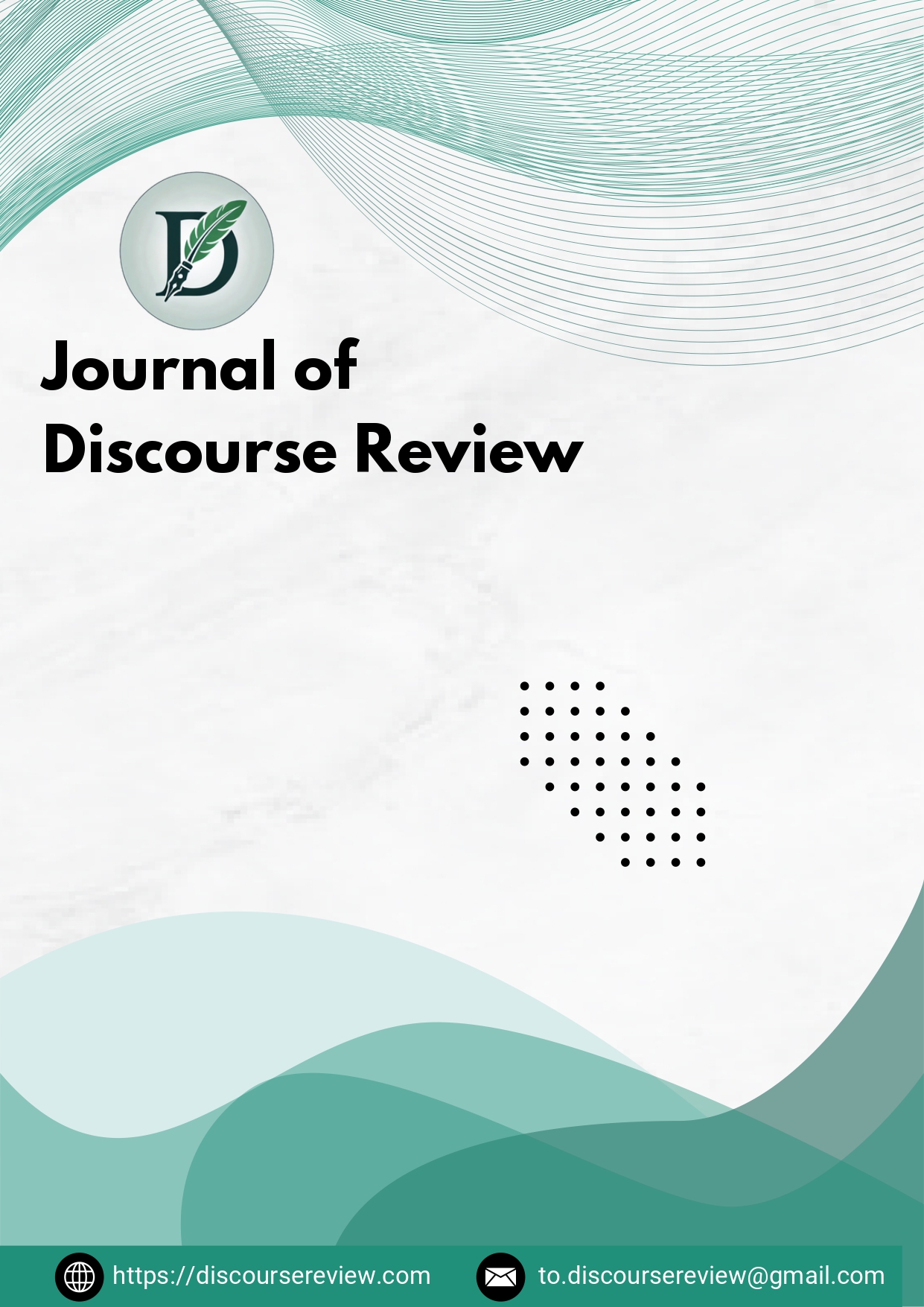
Journal of Discourse Review
Open Access Humanitarian Scholarship
7 days
Time to first decision

Open Access Humanitarian Scholarship
Time to first decision
Volume: 1 Issue: 1
Year: 2025, Page: 85-95,
Received: Feb. 10, 2025 Accepted: March 24, 2025 Published: April 22, 2025
The ongoing disintegration of political, economic, and social structures in today’s world highlights a deeply entrenched and fragmented worldview. From international conflicts to environmental devastation, humanity is caught in a cycle of materialism driven by competition, unchecked consumerism, and self-centred pursuits, leaving little room for a holistic understanding of reality. Though Vedanta carries a timeless message of interconnectedness and harmony, its transformative power to solve today’s global crisis has been largely unexplored. This research explores the profound ontological distinction between vyavaharika (empirical reality) and Paramarthika (ultimate reality) as articulated in Advaita Vedānta and applies this framework to address contemporary global challenges. In a world fragmented by political, economic, and social divisions, the dominance of Vyavaharika’s thinking perpetuates conflict, materialism, and exploitation. This paper argues that recognizing the Paramarthika truth—an undivided, non-dual reality of interconnected existence— offers a transformative philosophical approach to reimagining global unity, peace, and sustainability. Vedanta ontology provides a pathway toward ethical global governance, ecological harmony, and socio-political equity by transcending the illusory nature of empirical differences. Drawing from classical texts like the Upanishads and Sankara’s Brahma Sutra’s commentary, alongside contemporary interpretations, this research examines how the realization of Paramarthika can serve as a practical, philosophical solution to modern fragmentation. It critically evaluates whether adopting a non-dual worldview can foster compassionate and sustainable interactions between nations and communities, ultimately paving the way for a more unified world order.
Keywords:
Advaita Vedanta, Vyavaharika, Paramarthika, Non-dualism, Global unity, Materialism, Brahman, Ethical Sustainability.
Abloh, R. (n.d.). Full profile of this author. Quora. Retrieved from https://www.quora.com/profile/Ram-Abloh?ch=10&share=8afff2bd&srid=12MJJ
Chandogya Upanisad (6.2.1). In The Principal Upanishads (S. Radhakrishnan, Trans.). Harper & Row.
Deutsch, E. (1969). Advaita Vedānta: A Philosophical Reconstruction. University of Hawaii Press.
Dwivedi, O. P. (2006). The environmental crisis and Hindu religion. New Delhi: Gyan Publishing House.
Gibbons, W. (2020). Sustainability and human wellbeing: A new paradigm for a regenerative future.
Sustainability Journal, 12(4), 202-218. https://doi.org/10.3390/su1204202
Guha, R. (2006). How much should a person consume? Environmentalism in India and the United States.
University of California Press.
Haigh, M. (2010). Global warming and the problem of policy innovation: Failure modes in environmental
problem-solving. Oxford: Oxford University Press.
Kaplan, D. M. (2013). Philosophy and the Non-Human World: Ethical and Political Implications of
Environmentalism. Oxford University Press.
Long, J. D. (2022). Advaita Vedānta, Swami Vivekananda, and sustainability. In R. D. Sharma & P. Bilimoria
(Eds.), Religion and sustainability: Interreligious resources, interdisciplinary responses (pp. 67-88).
Springer. https://doi.org/10.1007/978-3-030-79301-2_4
Mitchell, S. (2006). The Bhagavad Gita: A New Translation. Three Rivers Press.
Mukherjee, S. (2020). Reinterpreting Advaita Vedanta for the modern world: Bridging idealism and pragmatism.
Oxford University Press.
Narayanaswamy, A. (2008). India's environmental politics: Crises and solutions. New Delhi: Sage Publications.
Nussbaum, M. (2011). Creating Capabilities: The Human Development Approach. Harvard University Press.
Nelson, L. E. (1998). The dualism of nondualism: Advaita Vedanta and the irrelevance of nature. University of San Diego.
Olivelle, P. (1998). The Brihadaranyaka Upanisad. Oxford University Press.
Parekh, B. (2019). Gandhi’s political philosophy: A critical examination. Palgrave Macmillan.
Radhakrishnan, S. (1929). Indian Philosophy. Volume 2. Oxford University Press.
Radhakrishnan, S. (1953). The Principal Upanishads. HarperCollins. (Original work published ca. 1000 BCE).
Ram-Prasad, C. (2001). Knowledge and Liberation in Classical Indian Thought. Palgrave Macmillan.
Śaṅkara. (1981). Brahma Sūtra Bhāṣya (Translated by Swami Gambhirananda). Advaita Ashrama.
Śaṅkara. (1981). Commentary on the Brahma Sūtras. (Trans. Swami Gambhirananda). Advaita Ashrama.
Sen, A. (2009). The idea of justice. Harvard University Press.
Sen, A. (1999). Development as Freedom. Oxford University Press.
Sharma, C. (1962). A Critical Survey of Indian Philosophy. Motilal Banarsidass.
Shiva, V. (2010). Soil Not Oil: Environmental Justice in a Time of Climate Crisis. North Atlantic Books.
Shiva, V. (2016). Earth democracy: Justice, sustainability, and peace. Zed Books.
Thibaut, G. (1890). The Brahma Sutras: Translated with the commentary of Shankaracharya. (Vol. 1-2). Adyar Library.
Van Norren, D. (2017). Development as service: A happiness, ubuntu and buen vivir interdisciplinary view of the
sustainable development goals. [Doctoral Thesis, Tilburg University]. Prisma Print.
Vivekananda, S. (1953). Complete Works of Swami Vivekananda. Advaita Ashrama.
Vivekananda, S. (1989). The Complete Works of Swami Vivekananda (Vol. 4). Advaita Ashrama.
© 2025 JDR Academic Trust. This is an open-access publication distributed under the terms of the Creative Commons Attribution 4.0 International License (CC BY 4.0). https://creativecommons.org/licenses/by/4.0/
Sultana, R. (2025). Transcending Dualistic Discourse: Advaita Vedanta’s Non-Dualism as a Paradigm for Global
Harmony and Ethical Sustainability. Journal of Discourse Review, 1(1), 85-95.